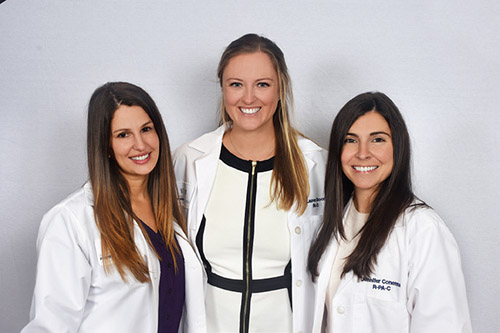
You show up in your physician/surgeon’s office for a long-awaited specialist appointment for evaluation of your injured knee. Three weeks ago you were on a weekend getaway and played volleyball for the first time in five years and twisted your knee as you came down from the best spike of your weekend volleyball career. The urgent care provider and your primary care doctor recommended that you see a specialist. The medical assistant brings you in the room and takes a brief history of your health and says the doctor will be right in. A few minutes into your counting of the ceiling tiles, in comes a person dressed in white, equipped with doctors equipment, except it’s not the doctor you researched long and hard on the internet. “Hi, my name is Isaac Abramchayev. I am a physician assistant. I work with Dr. Heitman. I will be seeing you today. Thank you for coming.”
A physician assistant (PA) is a licensed professional recognized and regulated by all 50 states. A physician assistant’s education is modelled after that of a physician and includes an intense, well-rounded didactic year that spans all areas of medical sciences as well as a year of clinical experience where most specialties of medicine and surgery are covered. The recent addition of a master’s degree requirement by most programs extended the scope of a PA’s education into clinical and social research.
Physician assistants are trained to adapt and extend the services of their supervising physician. Obtaining a thorough history, performing physical examinations, ordering diagnostic and radiology tests, developing a working diagnosis and implementing a treatment plan are all part of the daily responsibilities of a physician assistant.
“Well, I was hoping to see Dr. Heitman today. My knee is killing me, very swollen. I’ve been taking Motrin and icing it ever since my injury three weeks ago. I think something is torn inside.”
Musculoskeletal injuries occurring in sports facilities, athletic fields or playgrounds represent close to 3 million doctor visits annually, according to one study. With a growing population and the advent of automation which increases the amount of leisure time, this statistic is bound to increase. Physician’s offices are usually packed with waiting patients and swamped support staff. Electronic medical record-keeping and strict guidelines on information safety, although extremely necessary, are reducing the physician’s available time for patient care.
“Mrs. Smith, why don’t you tell me a little bit about your injury and your pain. I will record the information, examine you, order some tests and see what we can do to help alleviate your pain.”
Upon hiring a physician assistant, a supervising physician is directly incentivized to educate and train a PA in his field. Specific points in history taking, physical exam and diagnostic tests are introduced in detail. Direct supervision of all patient interaction is enforced to assure the PA’s skills are sharpened. Physician assistants in musculoskeletal practices are trained by their supervising physician to perform minor procedures like joint aspirations and injections, minor and major closed reductions of fractures, as well as strapping and casting of the injured body part. Conscious sedation and prescription of controlled substances falls under the scope of a PA under the supervision of a physician.
“Mrs. Smith, I find that your knee joint is filled with quite a bit of fluid, which is causing your acute pain. I suspect that you may have either a large meniscus tear or an anterior cruciate ligament tear. I will speak to Dr. Heitman about your case and we will come back and speak to you about treatment options. Thank you for trusting me with your health.”
The Center for Musculoskeletal Disorders proudly employs four physician assistants both in orthopedic and pain management office setting as well as physician assistants in complex orthopedic procedures. Jennifer Conenna, PA-C; Lauren Roop, PA-C; Katherine Migliore, PA-C; and Isaac Abramchayev PA-C have a combined 30+years of experience together with some of the finest orthopedic and pain management-trained physicians in the New York metro area.
By Isaac Abramchayev, PA-C










